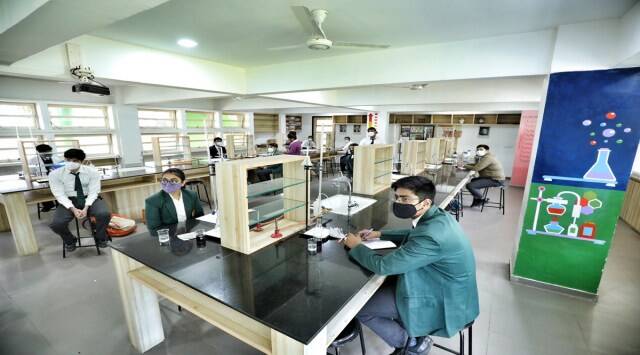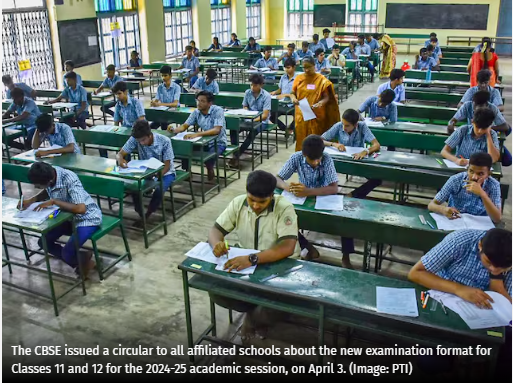
Jun 01, 2023
NCERT drops periodic table chapter from Class 10 science textbook in ‘rationalisation’ exercise
The Class 11 chapter in the Chemistry textbook on the same topic, however, has been retained
“The Periodic Table is arguably the most important concept in chemistry, both in principle and in practice….An awareness of the Periodic Table is essential to anyone who wishes to disentangle the world and see how it is built up from the fundamental building blocks of the chemistry, the chemical elements.”
The chapter on ‘Classification in Elements and Periodicity in Properties’ in NCERT’s Class 11 Chemistry textbook begins with these words of American chemist Glenn T Seaborg. Yet, a full chapter, which introduces students to the topic, has been removed from NCERT’s Class 10 Science textbook as part of the council’s “rationalisation” exercise. The Class 11 chapter on the topic, however, remains part of the syllabus.
The deletion from the Class 10 textbooks was made by the NCERT in June 2022, saying, “In view of the COVID-19 pandemic, it is imperative to reduce content load on students.” Among other deletions, made last year, from the class 10 Science textbook include passages on ‘Evolution’. The new textbooks with deletions and changes made last year have now hit the market.
‘Evolution’, including the Darwininian theory on natural selection, remains a part of the school curriculum though as NCERT’s Class 12 Biology textbook has a full chapter on the subject. Among other topics which have been spiked from Science textbooks include chapters on Fibre and Fabrics in Classes 6, 7 and 8.
The Class 6 chapter on the topic had a reference on Mahatma Gandhi in the context of charkha. “Another hand operated device for spinning is charkha. Use of charkha was popularised by Mahatma Gandhi as part of the Independence movement. He encouraged people to wear clothes made of homespun yarn and shun imported cloth made in the mills of Britain,” it said.
Another deletion that stands out is of the chapter “Why do we fall ill” from Class 9 Science textbook. Ironically, the chapter introduces students to viruses and air-borne diseases such as Covid-19, citing which the rationalisation exercise was carried out by the NCERT.
“Such disease-causing microbes can spread through the air. This occurs through the little droplets thrown out by an infected person who sneezes or coughs. Someone standing close by can breathe in these droplets, and the microbes get a chance to start a new infection. Examples of such diseases spread through the air are the common cold, coronavirus disease (Covid-19), pneumonia and tuberculosis,” read a paragraph in the chapter which was updated after the pandemic broke out.
But the entire chapter was axed citing the need to reduce content load due to disruptions in learning caused by Covid-19. Apart from its in-house experts, the NCERT had roped in 25 external experts, drawn from the faculty of Delhi University, ICHR, various Kendriya Vidyalayas and private schools for carrying out the rationalisation.
The factors cited by the NCERT behind the deletions include content which are “overlapping”, “not relevant or outdated in the present context”, “difficult”, “easily accessible to children and can be learned through self-learning or peer-learning”.
Recent News

CBSE Changes Year-end Exam Format for Classes 11, 12; Weight...
Posted 3 weeks ago

Faculty of Law, Delhi University introduces five-year integr...
Posted 8 months ago

NCERT drops periodic table chapter from Class 10 science tex...
Posted 10 months ago

Now, humanities students can pursue BTech in CSE
Posted 10 months ago

CUET UG 2023: Two phases conclude, average attendance at 69....
Posted 11 months ago
